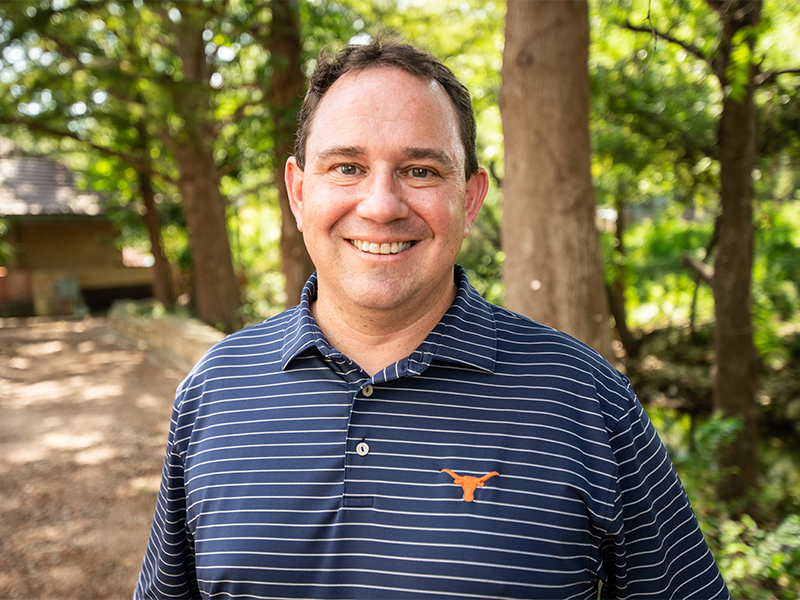Back to Faculty Directory

webber@mail.utexas.edu
512-475-6867
Office Location: ETC 6.106EA
Michael Webber
Professor
Cockrell Family Chair in Engineering #16
Department Research Areas
Clean Energy Technology
Thermal Fluids Systems and Transport Phenomena
Dr. Michael E. Webber is the Sid Richardson Chair in the LBJ School of Public Affairs and the Cockrell Family Chair in Engineering #16 in the department of mechanical engineering at the University of Texas at Austin. In addition to his role as a faculty member, from August 2021 to September 2024, Webber served as CTO of Energy Impact Partners, a $5 billion venture fund focused on investments in cleantech and climate tech startups with the potential for deep decarbonization at speed and scale. Furthermore, from September 2018 to August 2021, Webber was based in Paris, France where he served as the Chief Science and Technology Officer at ENGIE, one of the world’s largest energy companies.
Webber’s works spans research and education at the convergence of engineering, policy, and commercialization on topics related to innovation, energy, and the environment. His group’s research tackles complex energy systems analysis with a deep record of expertise on the following: 1) grid reliability in the face of electrification and the rise of variable sources in a warming world, 2) the hydrogen sector and how it couples to other sectors such as the grid, transportation, and industry, 3) the built environment and 4) the food-energy-water-waste nexus. Among many executive advisory roles, he serves on the board of GTI Energy (an industry consortium formerly known as the Gas Technology Institute) and the Scientific Advisory Council for ENGIE in Paris, France.
Webber has authored or co-authored more than 600 publications, including five full-length general interest books, and holds 6 patents. His essays have been published in The New York Times, The Wall Street Journal, Washington Post, Scientific American and more. Webber’s scholarly articles have appeared in top journals such as Science, Nature, and Environmental Science & Technology.
His book Power Trip: the Story of Energy was published in 2019 by Basic Books with an award-winning 12-part companion series spread out over two seasons that aired on PBS, Amazon Prime, AppleTV, and in-flight entertainment on American Airlines. The series had more than 10,000 broadcasts in the United States and has been distributed in dozens of countries, ultimately reaching millions of viewers. His book Thirst for Power: Energy, Water and Human Survival was published in 2016 by Yale Press. An accompanying documentary Thirst for Power was released nationally on PBS starting April 1, 2025. Seasons 1 and 2 of Power Trip along with his documentary Thirst for Power and television special Energy at the Movies have been recognized with six Telly Awards (one gold, four silver, and one bronze) for excellence in television.
In 2024 Webber was selected for the Energy Thought Leader: Higher Education award by the American Energy Society and a three-year term as a Fulbright Technical Specialist by the U.S. State Department. He was selected in 2014 as a Fellow of ASME (the American Society of Mechanical Engineers), in 2018 as a member of the 4th class of the Presidential Leadership Scholars, which is a leadership training program organized by Presidents George W. Bush and William J. Clinton, and in 2022 for the Rockefeller Foundation’s prestigious writer’s residency in Bellagio, Italy. He was honored as an American Fellow of the German Marshall Fund and on four separate occasions by the University of Texas for exceptional teaching.
Webber holds a B.S. and B.A. from UT Austin, and M.S. and Ph.D. in mechanical engineering from Stanford University.
Selected Publications
- Y.R. Glazer, D.M. Tremaine, J.L. Banner, M.A. Cook, R.E. Mace, J.Nielsen-Gammon, E. Grubert, K. Kramer, A.M.K. Stoner, B.M. Wyatt, A. Mayer, T. Beach, R. Correll, and M.E. Webber, “Winter Storm Uri: A test of Texas' water infrastructure and water resource resilience to extreme winter weather events," Journal of Extreme Events, 2150022, Published December 31, 2021.
- I.M. Gee, K.M. Faust, and M.E. Webber, “A framework for determining energy use in rural food delivery services: capturing system interdependencies through an agent-based discrete-event approach," Environmental Research: Infrastructure and Sustainability (2021).
- S.C. Johnson, D. Papageorgiou, M.R. Harper, J.D. Rhodes, K. Hanson, and M.E. Webber, “The economic and reliability impacts of grid-scale storage in a high penetration renewable energy system," Advances in Applied Energy, 3 (2021) 100052.
- P.R. White, J.D. Rhodes, E.J.H. Wilson, and M.E. Webber, “Quantifying the impact of residential space heating electrification on the Texas electric grid," Applied Energy, Volume 298, 15 September 2021, 117113.
- J.W. Busby, K. Baker, M.D. Bazilian, A.Q. Gilbert, E.A. Grubert, V. Rai , J.D. Rhodes, S. Shidore, C.A. Smith, and M.E. Webber “Cascading Risks: Understanding the 2021 Winter Blackout in Texas," Energy Research & Social Science, Volume 77, July 2021, 102106.
- K Ramirez-Meyers, W. N. Mann, T.A. Deetjen, S.C. Johnson, J.D. Rhodes, and M.E. Webber, “How different power plant types contribute to electric grid reliability, resilience, and vulnerability: a comparative analytical framework," Progress in Energy, 3 033001 (2021).
- A. Bandyopadhyay, B.D. Leibowicz, and M.E. Webber, “Solar panels and smart thermostats: The power duo of the residential sector?," Applied Energy, Volume 290 (2021).
- I.M. Gee, B. Heard, M.E. Webber, and S. Miller, “The Future of Food: Environmental Lessons from E-Commerce," Environmental Science and Technology (2020).
- J. Mertens, R. Belmans and M.E. Webber, “Why the Carbon-Neutral Energy Transition Will Imply the Use of Lots of Carbon," Journal of Carbon Research, 2020, 6, 39.






